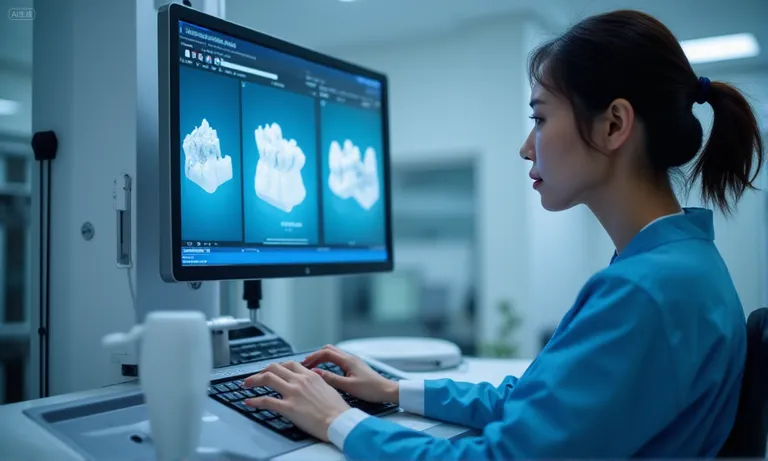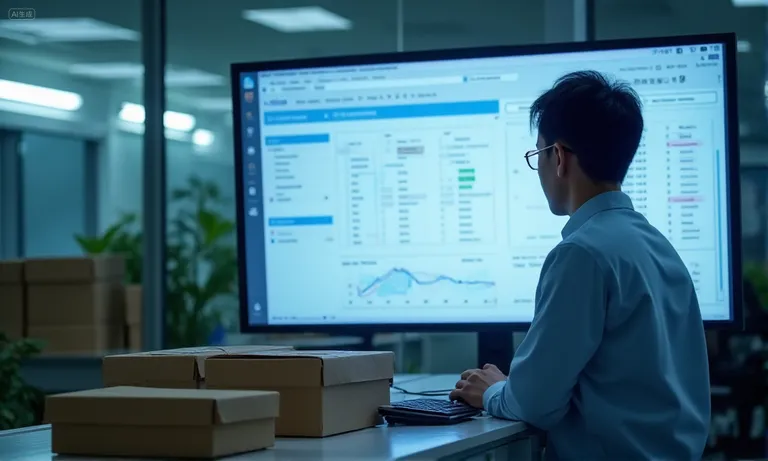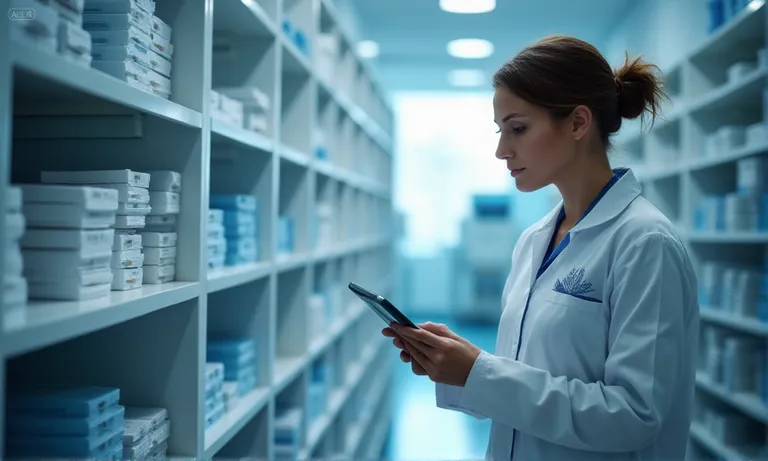OEM dental implant labs must deliver on two non-negotiables: the ability to scale production and the discipline to ship cases on time. Success depends on structured digital workflows, automation, and strong global logistics coordination. For procurement teams, the key question is whether a partner can handle growing volumes without raising remake risks or compromising turnaround stability.
Key Challenges
- Rising remake rates as order volumes increase
- Delayed timelines from poor scheduling or logistics
- Miscommunication that erodes buyer confidence
Proven Approaches
- Deploying CAD/CAM automation and outsourcing complex design tasks
- Operating under ISO-certified quality systems
- Using transparent production schedules and optimized shipping strategies
Reliable Outcomes
With these safeguards in place, OEM dental labs evolve from vendors into trusted long-term partners. Buyers gain measurable assurance — delivery rates above 98%, remake ratios under 5%, and open supplier reporting — that confirms both scalability and reliable on-time delivery.
What Enables OEM Dental Labs to Scale Implant Production Efficiently?
Scaling implant production in OEM dental labs depends on standardized workflows, smart outsourcing, and digital technologies that streamline high-volume case handling. Without these enablers, labs face bottlenecks that slow turnaround and increase remake rates.

dental-lab-automation-cadcam
How do standardized workflows and automation support implant production growth?
Automation allows OEM labs to process more cases without sacrificing consistency. Standardized workflows—such as digital design protocols and repeatable CAD/CAM processes—ensure every technician follows the same steps. This reduces variability and makes scaling predictable. For example, a workflow that integrates intraoral scans directly into 3Shape or Exocad systems can cut case prep time by 26%.
Why does outsourcing CAD/CAM design improve scalability and reduce errors?
Outsourcing CAD/CAM design to specialized teams enables labs to focus internal resources on production. This division of labor ensures faster turnaround while lowering the risk of design errors that cause costly remakes. One client case showed that when Raytops dental lab supported a U.S. partner by taking over overflow CAD design tasks, remake rates fell by 12% within six months, and production capacity increased by 25%.
What role do AI tools and real-time tracking play in handling higher implant volumes?
AI-driven design validation tools can automatically flag margin line issues or implant angulation conflicts before files reach production. Real-time tracking platforms, often linked with ERP systems, allow managers to monitor case status across hundreds of orders. This not only helps prioritize urgent cases but also provides clients with live updates, reducing back-and-forth communication.
Labs that combine standardized workflows, outsourced expertise, and digital tracking create scalable production systems. For clinics and procurement teams, this translates into predictable capacity and reliable delivery even during peak volumes.
How Do Dental Implant OEM Labs Ensure Consistent Quality at Higher Volumes?
As implant case volumes grow, the risk of higher remake rates increases unless labs invest in structured quality assurance. Scalable production is only valuable when consistency is preserved, which requires a combination of staff training, international compliance, and reliable material choices.

dental-lab-quality-assurance-training
What QA processes and staff training reduce remake rates in implant cases?
- Structured QA checkpoints at each stage (scanning, design, milling, finishing).
- Randomized case audits to identify recurring errors before shipment.
- Continuous technician training to keep pace with new CAD/CAM updates.
- Feedback loops with clinics to review remake causes and implement corrections.
These practices ensure that even when case numbers rise, remake rates remain under control. For example, Raytops dental lab saw remake rates drop below 3% after introducing a structured “three-point QC” process and monthly technician retraining.
How do ISO 13485, FDA, and CE compliance guarantee quality reliability?
| Certification | Requirement | Relevance |
|---|---|---|
| ISO 13485 | Quality management systems for medical devices | Ensures controlled processes for implants and restorations |
| FDA 21 CFR Part 820 | Quality System Regulation | Mandates traceability and process validation for U.S. supply |
| CE Marking | EU conformity requirements | Demonstrates product safety and compliance across Europe |
When a lab operates under these frameworks, clinics can trust that quality processes are independently audited and meet global medical device standards.
Why is the use of high-quality materials essential for consistent implant results?
Even with strict QA and compliance, poor materials undermine outcomes. Using authentic titanium bases, FDA-cleared zirconia, and supplier-certified alloys ensures that every implant restoration performs reliably. One European partner lab we collaborated with previously struggled with inconsistent shading because of low-grade zirconia. After switching to certified suppliers through our procurement network, their shading consistency improved, and remake requests for esthetic mismatch fell by 20%.
When labs combine rigorous QA processes, compliance certifications, and proven material sourcing, they can scale production without sacrificing reliability. Learn more about ISO 13485 here.
What Factors Affect On-Time Delivery in Global Dental Implant Lab Projects?
On-time delivery in dental implant partnerships depends on how well labs control logistics, production scheduling, and material readiness. Even with efficient production, delays in file handling or shipping can disrupt case timelines and damage client trust.

dental-lab-logistics-tracking
How do logistics efficiency and shipping partners affect implant turnaround time?
Global dental implant workflows often cross borders, which makes logistics a critical factor. Choosing reliable express carriers with dental-specific shipping solutions can significantly reduce transit delays. For example, one U.S. DSO improved case predictability after Raytops dental lab aligned shipments exclusively with FedEx and DHL Dental Express, reducing average shipping time by 1.5 days. See FedEx healthcare logistics.
Why are clear production schedules and digital file compatibility critical for timely delivery?
- A well-defined production schedule ensures cases are prioritized and tracked through each stage.
- Digital file compatibility (e.g., 3Shape, Exocad) prevents delays from reformatting or manual corrections.
- Shared case dashboards give clinics visibility into estimated completion times.
- Consistent scheduling reduces the risk of bottlenecks during peak volumes.
These practices align clinic expectations with lab capacity, minimizing miscommunication.
How does early material specification help avoid implant delivery delays?
- Clinics confirm abutment type and restoration material at case submission.
- Labs verify material availability immediately, before design or milling starts.
- Any substitutions or alternatives are discussed early to avoid last-minute sourcing.
- Cases proceed smoothly without waiting for missing components.
This proactive approach ensures that projects do not stall because of late material decisions.
When global labs integrate logistics efficiency, scheduling discipline, and early material planning, they can consistently deliver on time. For procurement teams, this means fewer surprises and greater trust in international supply chains.
How Do OEM Dental Labs Reduce Risks in Delivery Commitments?
Even with strong workflows, unexpected risks such as material shortages, delayed shipments, or remake requests can threaten delivery timelines. OEM dental labs reduce these risks by combining inventory control, reliable supplier partnerships, and clear remake policies that keep projects on track.

dental-lab-inventory-management
What strategies and inventory management help mitigate delays in implant projects?
- Maintain safety stock of high-use items like titanium bases and zirconia discs.
- Use digital inventory systems with automated alerts for low stock levels.
- Apply demand forecasting based on client case volume trends.
- Regularly audit inventory to reduce waste and ensure usable shelf-life.
These practices allow labs to continue production even if suppliers face temporary disruption.
How do strong supplier relationships support reliable material availability?
Supplier partnerships are as critical as in-house systems. Labs that maintain long-term contracts with multiple trusted suppliers are less vulnerable to shortages. In one case, Raytops dental lab secured dual-source supply agreements for zirconia, ensuring no delays during a regional shortage in 2023. For clinics, this meant implants were delivered on schedule even when competitors struggled. Strong supplier ties transform potential disruptions into minor inconveniences.
Why is a clear remake or return policy part of delivery assurance?
| Policy Element | Benefit for Clinics | Benefit for Labs |
|---|---|---|
| Defined remake window | Clinics know how quickly remakes will be prioritized | Labs can plan production capacity accordingly |
| Transparent return process | Builds client confidence in service reliability | Reduces disputes and administrative delays |
| Cost-sharing terms | Clarifies responsibility for remake costs | Encourages mutual accountability |
Clear policies ensure that when issues arise, resolution is efficient and trust is maintained.
By combining inventory readiness, supplier resilience, and transparent remake terms, OEM labs demonstrate reliability even under pressure. For procurement teams, these measures provide confidence that delivery promises are backed by solid risk management practices.
What Criteria Should Procurement Teams Use to Evaluate a Scalable Dental Implant OEM Lab?
Procurement teams deciding on an OEM dental implant lab must evaluate more than price. The right criteria include delivery reliability, remake rates, pricing structures, and clear signs that the lab can scale with growing demand. Using measurable benchmarks ensures decisions are based on performance rather than promises.

dental-lab-procurement-evaluation
Which supplier comparison metrics matter most (delivery rate, remake % rate)?
| Metric | Benchmark | Why It Matters |
|---|---|---|
| On-time delivery rate | ≥98% | Predictability in clinical schedules |
| Remake rate | ≤3–5% | Indicates stable quality and fewer patient disruptions |
| Communication response time | <24 hours | Prevents case delays due to unanswered queries |
These metrics help procurement teams quickly distinguish between suppliers that claim reliability and those that demonstrate it.
How do pricing structures align with long-term implant volume growth?
Sustainable pricing is not about the lowest unit cost but about how well structures support volume expansion. Tiered pricing models, where costs decrease as case numbers rise, can make high-volume outsourcing financially viable. When Raytops dental lab partnered with a Canadian DSO, shifting to a tiered pricing agreement allowed the group to scale from 200 to 500 monthly cases without unpredictable budget spikes.
What indicators suggest a dental implant lab is a stable and scalable partner?
- Investment in digital workflows and automation capacity.
- Evidence of compliance certifications (ISO 13485, FDA, CE).
- Transparent QC reports and remake statistics shared with clients.
- Financial stability and long-term supplier contracts.
- Case studies of scaling with other clinics or DSOs.
These indicators signal whether a lab can grow with procurement needs without compromising quality or delivery.
By using objective performance metrics, sustainable pricing models, and stability indicators, procurement teams can choose OEM partners with confidence. For global collaborations, an overseas dental lab that proves its scalability through both systems and results is far more valuable than one offering only low upfront costs.
Conclusion
Scaling implant production and ensuring timely delivery requires more than equipment—it depends on how effectively OEM labs integrate digital workflows, logistics discipline, and risk management. Clinics that partner with overseas dental labs gain access to structured systems that combine automation, quality assurance, and reliable global shipping.
By focusing on measurable outcomes such as delivery rate, remake percentage, and compliance readiness, procurement teams can identify partners who will remain stable as volumes grow. When trust is reinforced through transparency and proven scalability, collaboration moves beyond transaction into long-term value creation. For clinics worldwide, choosing the right OEM dental lab is ultimately about securing both clinical predictability and sustainable growth.


